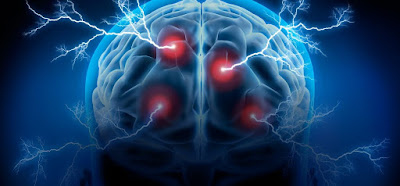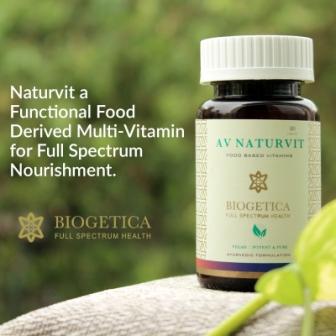Cardiovascular disease of atherosclerotic origin is among the major causes of death and hospital admissions in middle-aged and older people. Thus, primary and secondary prevention of these morbidities is a top priority of national public health policies in major countries. During the last two decades various national and international societies developed guidelines for physicians in order to support their preventive and curative practice.
"Stroke is the second most common cause of death worldwide and a leading cause of disability," said study author Chin-Lon Lin, M.D., of Tzu Chi University in Hualien, Taiwan. "Stroke can also contribute to dementia. If we could reduce the number of strokes by people making changes to their diets, that would have a major impact on overall public health."
People who eat a vegetarian diet rich in nuts, vegetables and soy may have a lower risk of stroke than people who eat a diet that includes meat and fish. Vegetarians ate more nuts, vegetables and soy than non-vegetarians and consumed less dairy. Both groups consumed the same amount of eggs and fruit. Vegetarians ate more fiber and plant protein. They also ate less animal protein and fat.
High blood pressure is a condition which causes pressure inside the arteries to be higher than they should be. If left untreated, dangerous health conditions could arise including heart attacks or a stroke. Eating too much salt, drinking too much alcohol, being overweight and not getting enough exercise can all lead to a person developing the condition. Foods and drinks can either help or hinder high blood pressure and consuming more of this drink has been proven to help lower your reading.
Diet plays an essential role when it comes to high blood pressure. Mayo clinic said: “If you’ve been diagnosed with high blood pressure, you might be worried about taking medication to bring your numbers down. “Lifestyle plays an important role in treating your high blood pressure. “If you successfully control your blood pressure with a healthy lifestyle, you might avoid, delay or even reduce the need for medication.” Adding apple cider vinegar to your daily routine will help to lower your reading
Apple cider vinegar has long been hailed as a healthy option to add to one’s diet. The drink has been seen as a popular “cure all” for many illnesses and conditions including an upset stomach, high cholesterol and sore throats. In fact, the ancient Greek doctor Hippocrates used apple cider vinegar for wound care and in the 10th century it was used with sulphur as a hand wash during autopsies to help prevent infection. Studies have shown that apple cider vinegar could play a key role in helping one to keep their blood pressure low.
In a study with Taylor & Francis Online, the effects of acetic acid vinegar on hypersensitive rats was investigated. The study noted: “To clarify the possibility of a preventative effect of dietary vinegar on blood pressure, long-term administration of vinegar or the acetic acid to SHR was examined. “As a result, it was observed that acetic acid itself, the main component of vinegar, significantly reduced blood pressure and renin activity compared to controls given no acetic acid or vinegar, as well as vinegar.” Apple cider vinegar can also be used to help with weight loss which in turn helps to lower blood pressure.
In a 12-week study, 144 obese Japanese adults consumed either one tablespoon of vinegar, two tablespoons of vinegar or a placebo drink every day. The participants were told to restrict their alcohol intake but to continue their usual diet and activity throughout the study. Those who consumed one tablespoon of vinegar per day had on average weight loss of 2.6 pounds and those who consumed two tablespoons of vinegar per day lost 3.7 pounds. The placebo group gained 0.9 pounds and their waist circumference slightly increased.
Overall, our study found that a vegetarian diet was beneficial and reduced the risk of ischemic stroke even after adjusting for known risk factors like blood pressure, blood glucose levels and fats in the blood," said Lin. "This could mean that perhaps there is some other protective mechanism that may protecting those who eat a vegetarian diet from stroke.
Stroke and its natural solution
A stroke is a condition in which brain cells do not receive enough oxygen due to which they die. This may happen due to an obstruction producing in the blood flow or due to the rupture of an artery that supplies the brain. Suddenly, the patient loses the ability to speak; there may be paralysis of the body parts and certain memory problems.
Mainly there are two types of strokes: Ischemic stroke and Hemorrhagic stroke
Ischemic stroke is the result of blockage produced by a clot or thrombus in the flow of blood. A thrombus or clot may be formed in a distant part of the body, but when it gets detached from its original site it may travel to the brain and can lead to ischemic stroke.
A hemorrhagic stroke may result when there is a rupture of the blood vessel inside the brain and it fills the space between the brain and the skull with the blood. The blood present in the brain cavity reduces the functioning of the brain as there is no connection between the blood supply and brain cells.
Both types of strokes lead to a decreased supply of oxygen to the brain and that creates enormous pressure on the brain. The outcome of the stroke depends upon the extent of damage and the part of the brain involved. In mild cases, it may cause slowing down of the functions whereas in severe cases it may lead to a permanent impairment of certain body organs.
Natural solutions for stroke
Strokes can affect people of any age. Many people remain in search of a superfood that may prevent them from degenerative diseases. A person who survives the stroke is left with debilitating health problems that occur due to a lack of oxygen to the brain. Fruits and vegetables are natural foods that aid in prevention. Fruits and vegetables are rich sources of essential vitamins and minerals that help to boost up the immune system as well as help in supplying proper nutrition to the brain cells.
Post stroke recovery tips
Tomato is believed to be an excellent vegetable for reducing the risk of stroke. Scientists in Finland have found that diet rich in tomato can dramatically reduce the risk of having a stroke.
Research findings have said that consistent exercise can enhance the process of brain healing. Exercise not only improves cognitive abilities following a stroke but it could also save the lives of many stroke victims. Research studies have found that exercise has helped many stroke victims to live their life independently after having an attack of stroke. Exercise increases the life expectancy of people with stroke.
Polyphenols obtained from natural foods may help in the treatment of stroke. In past studies, resveratrol, curcumin, and grape seed extract have been shown to help prevent cardiovascular disease, diabetes, cancer, and dementia as this helps to alter gene expression to improve the nutrition of the brain cells.
Most nutrition specialists indicate that a high protein diet is necessary to promote vibrant health. A high protein diet also helps in the management of the weight and lowers the risk of metabolic dysfunction. Proteins also help in the repair of damaged cells and tissues.
Foods rich in anti-oxidants are helpful because they reduce the formation of a blood clot and reduce blood pressure. A group of foods rich in anti-oxidant includes blueberries, artichokes, russet potatoes, etc. Foods rich in anti-oxidants help by reducing the number of free radicals in our bodies. Free radical damages the cells and leads to the production of deadly diseases such as cancer and stroke.
Apple is another fruit that is believed to reduce the risk of stroke. Dutch researchers found those eating apples; pears and other white-fleshed fruits and vegetables might lessen stroke risk by a dramatic 52%.
A diet rich in all the essential nutrients must be required to remain healthy overall.
Stroke recovery stories
Mark, a 42-year-old male patient from the United States, suffered from a sudden cerebral hemorrhage in March 2018, while he was at home. After he recovered, Mark was left with his left body side feeling numb and with persistent neuropathic pain. His motor function was also impaired, as it was not easy for him to walk. The Long-term physical discomfort made Mark feel more and more anxious, especially since every treatment he tried during this 8 month long ordeal, did not provide any solution or pain relieve. Mark became sacred that he would fall and as a consequence became home bound and worried about having to walk around.
As an Amazon Associate I earn from qualifying purchases.
Mark has two daughters and his duty to provide for them overcame his fear and Mark continued to search for a solution, when the began to read about all advanced stroke treatments he could find on the internet.
Following surgery, Mark received specific supplementation to support his neurological condition as well as rehabilitation exercises and acupuncture. Mark commented that the nerve pain was greatly reduced and the body was stronger than before. At the same time, his mood became to improve and the anxiety was lifting from his mind.
He started to get up and was encouraged by his new found ability to walk with confidence. He now began to walk out of his hospital room, although not quite stable yet, he did not require any support. A great aid to your recovery is taking daily biogenetic supplements, which help prevent new strokes.


Comments
Post a Comment